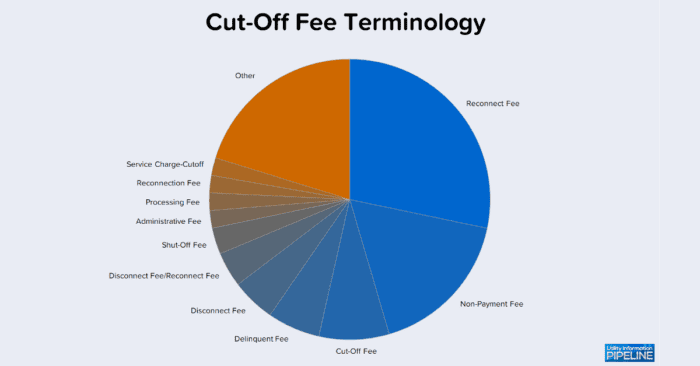Over the course of the past few months, I’ve been conducting the 2023 Utility Fee Survey. This is the fifth Utility Fee Survey dating to 2015, with subsequent fee surveys in 2017, 2019, and 2021. The survey was designed to research what fees utilities charge, how much they charge for each fee, and to see what trends, if any, are occurring with fees.
The Utility Fee Survey is a biennial survey, alternating years with the Utility Staffing Survey.
As was the case in each of the previous surveys, the results include too much information for a single issue. If you’re interested, here are the results from the previous Utility Fee Surveys:
2015 Utility Fee Survey Results
2017 Utility Fee Survey Results
2019 Utility Fee Survey Results
2021 Utility Fee Survey Results
The last blog post summarized the demographics of the survey respondents as well as water and sewer tap and impact fees. Today’s post deals with delinquent fees and policies. The next blog post will be the third and final survey results issue and will recap all remaining fees.
Late fees
Of the 109 participating utilities, 107 charge a late fee. As shown by this graph, charging a late fee as a percentage of the bill is the most popular method (clicking on the any of the graphics will open a larger image in a new window):
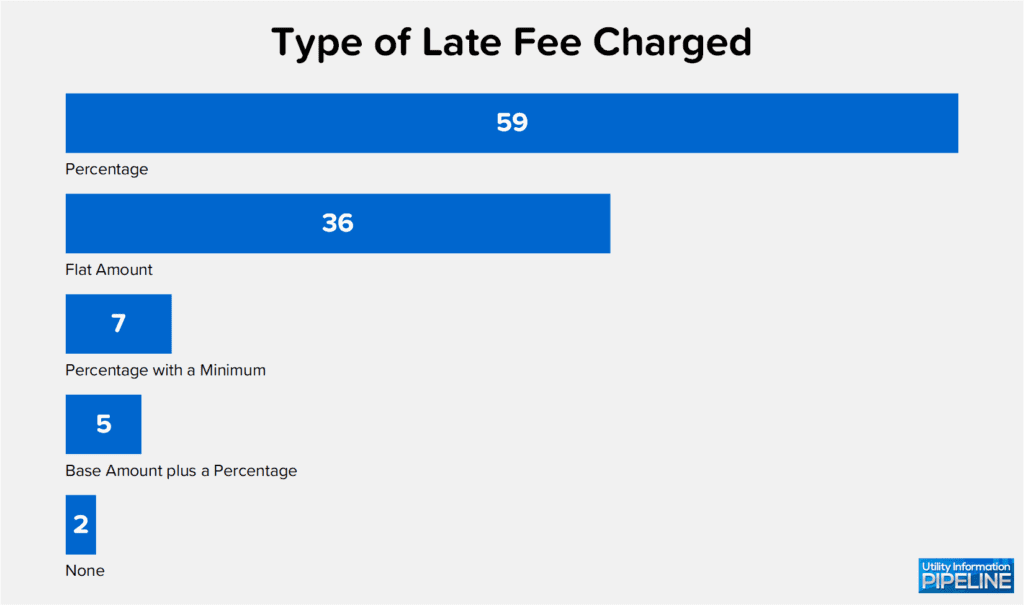
Compared to the 2021 Utility Fee Survey, utilities charging a percentage has decreased slightly (55.1% vs. 57.1%) Those charging a flat amount is up (33.6% vs. 28.6%). Also seeing a slight decrease is utilities charging something other than a percentage or flat amount (down from 13.0% to 11.2%).
Utilities that assess a late fee as a percentage charge from 1% to 25%, with 10% far and away the most popular, as this graph depicts:
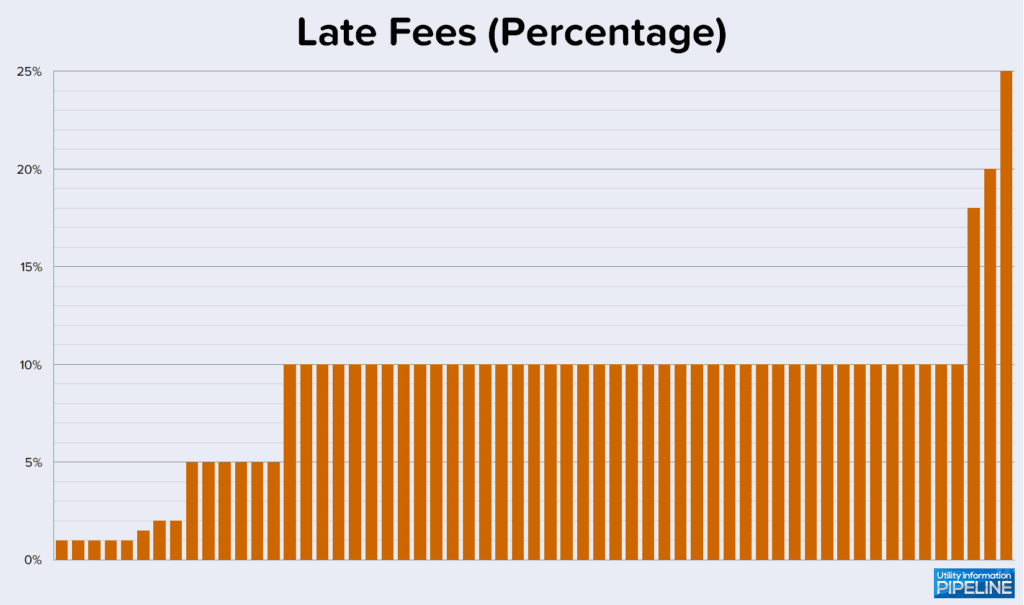
Late fees range from $5.00 to $50.00 for utilities charging a flat amount. This graph illustrates the late fee flat amounts:
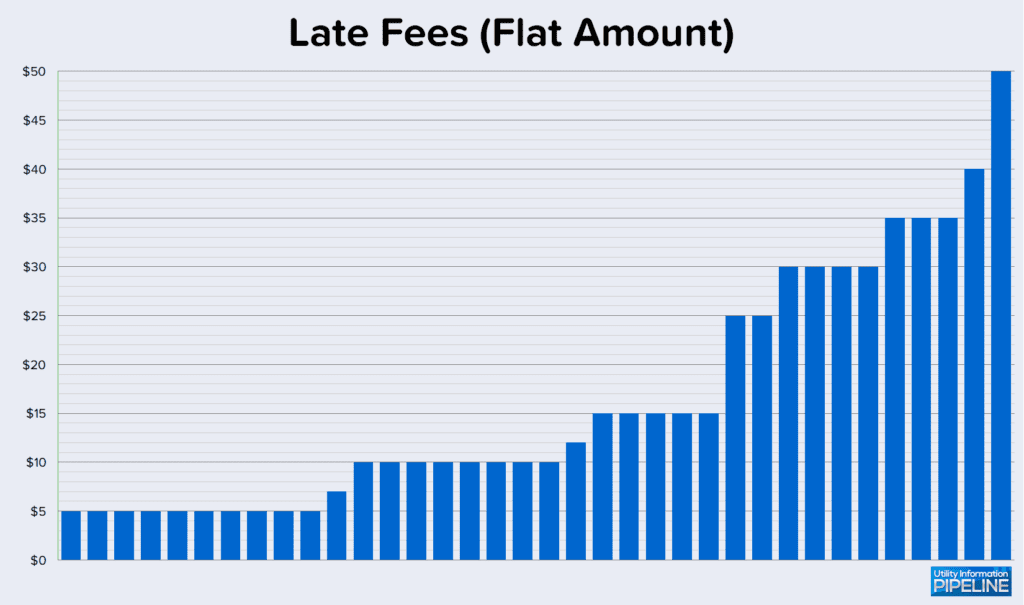
Seven of the utilities (down from 15 in 2021) charge a hybrid late fee – a combination of a percentage with a minimum amount. Here is a graph showing what they charge:
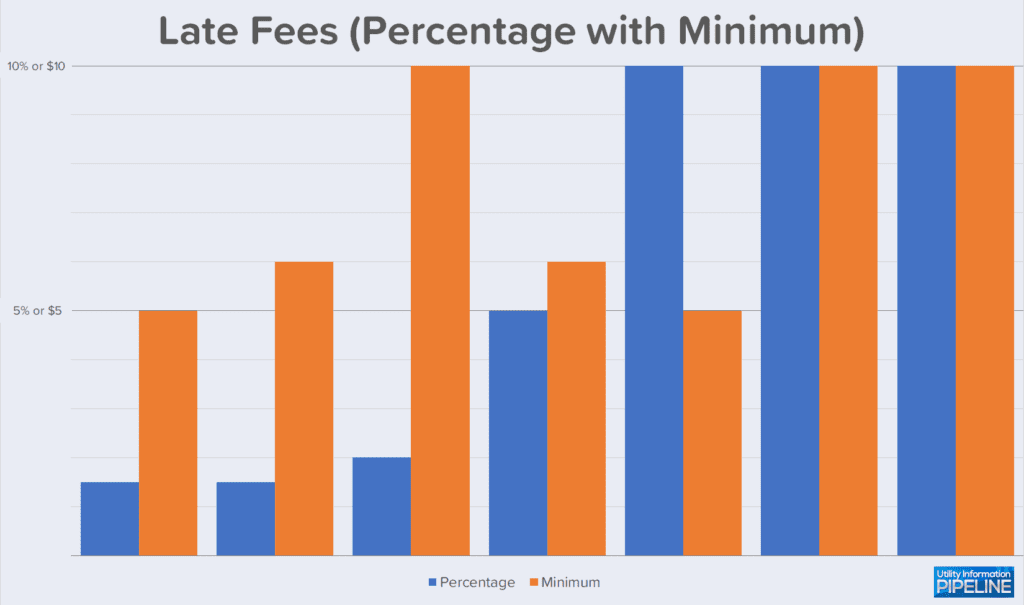
Five utilities charge a base amount plus a percentage as shown below:
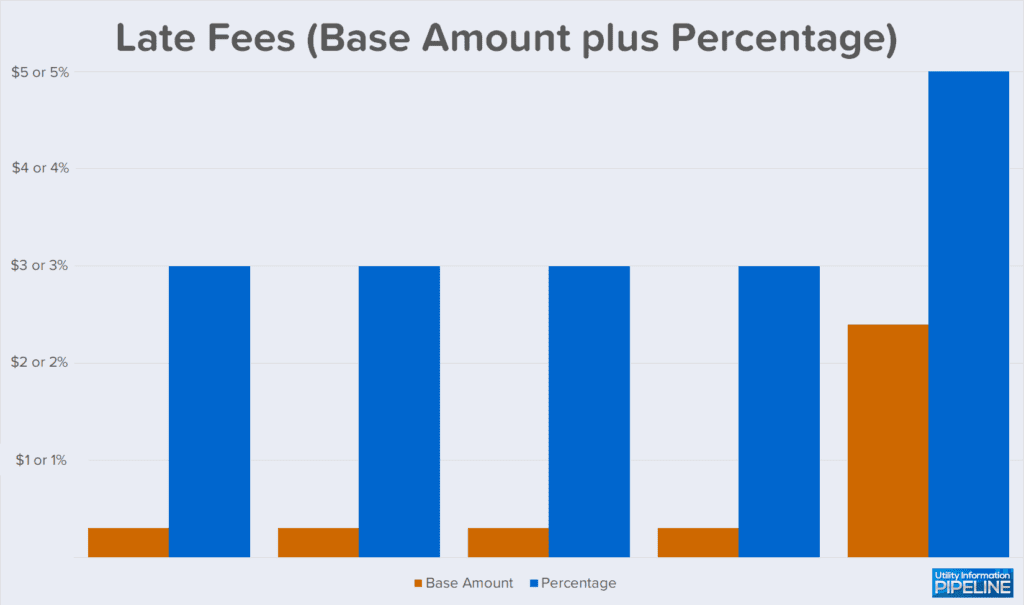
While not technically a fee, this year’s survey again asked how, other than the utility bill, each utility notifies customers that a late fee or penalty has been applied. Here are the responses to that question (the total of all responses is greater than the number of participating utilities because some utilities use multiple methods of contact):
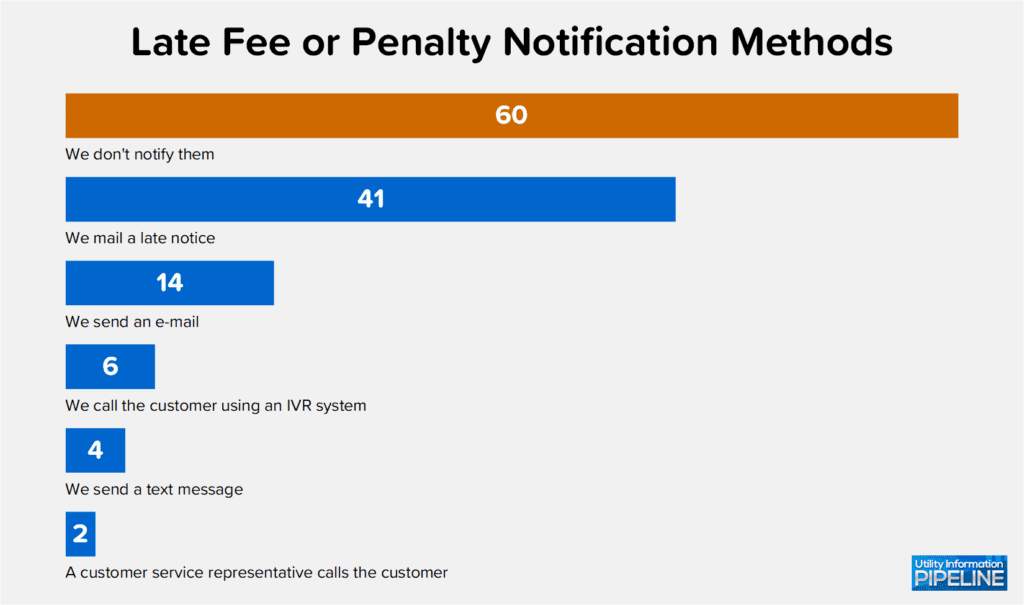
Cut-off fees
Ten of the 109 utilities do not cut off for non-payment. The remaining 99 that do cut off for non-payment all charge a cut-off or reconnect fee as a flat amount. Three of the responding utilities charge an escalating cut-off fee whereby the more times a customer is on the cut-off list, the higher the fee becomes. In those cases, the amount shown in the graph is for first offenders. Additionally, two of the utilities charge a separate disconnect fee and reconnect fee. In those cases, the graph represents the combined total of both fees. Finally, two additional utilities charge a cut-off fee per service. In those cases, the graph assumes all services are being disconnected.
Cut-off or reconnect fees charged by the 99 utilities range from $15.00 to $225.00 as shown below:
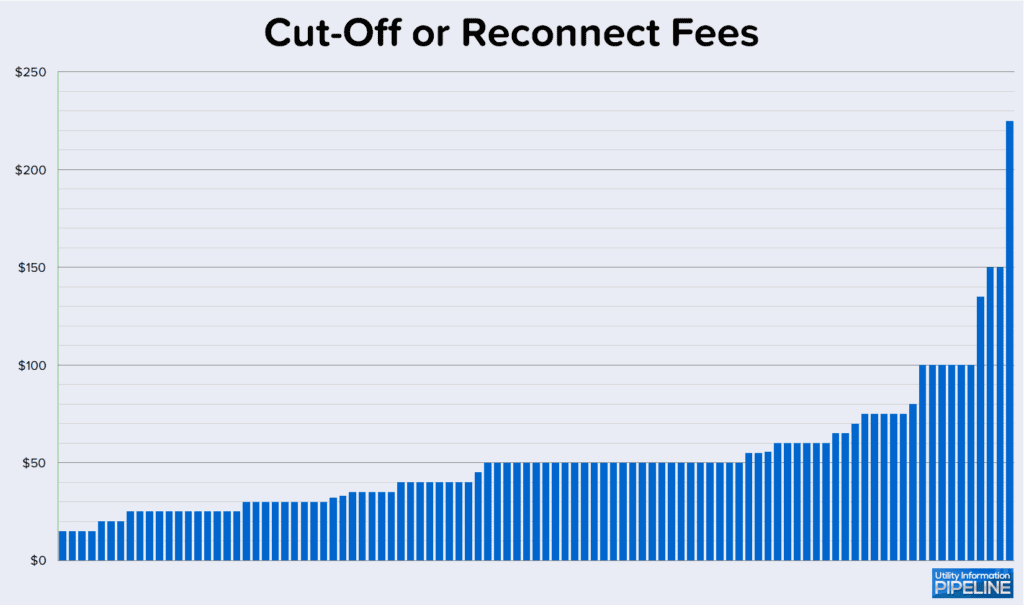
Of the 99 utilities that cut off for non-payment, 76 of them (representing 76.8%) assess the cut-off fee as soon as the cut-off list leaves the office. The percentage of utilities charging the cut-off fee immediately is up 3.9% from the 2021 Utility Fee Survey:
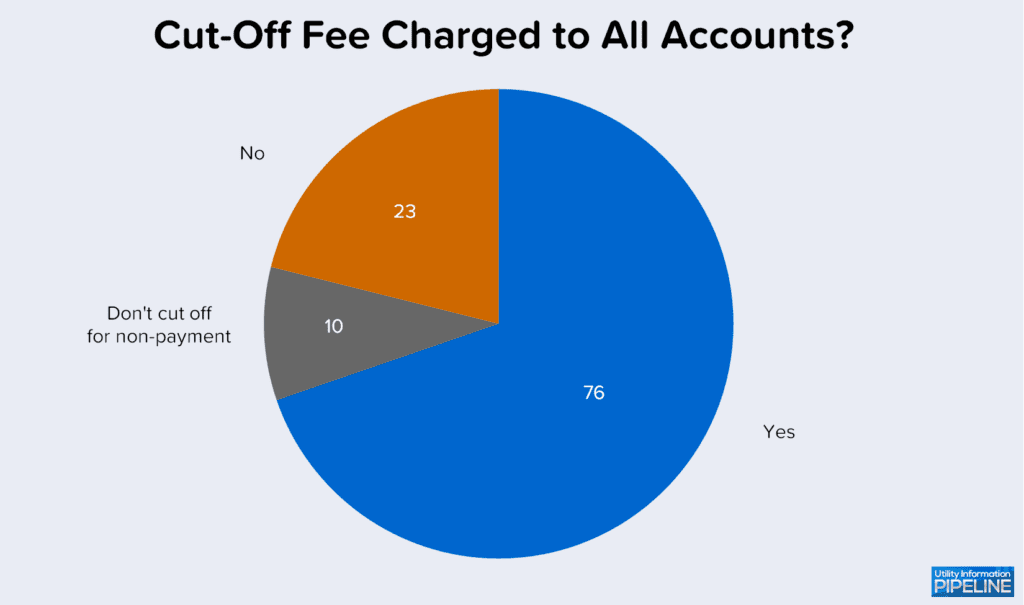
Cut-off fee terminology
As utilities adopt the best practice of charging the cut-off fee as soon as the cut-off list leaves the office, many are finding that terms such as “cut-off fee”, “disconnect fee” or “reconnect fee” are becoming outdated. For that reason, the survey asked what each utility calls its cut-off fee. The results are displayed in the following chart:
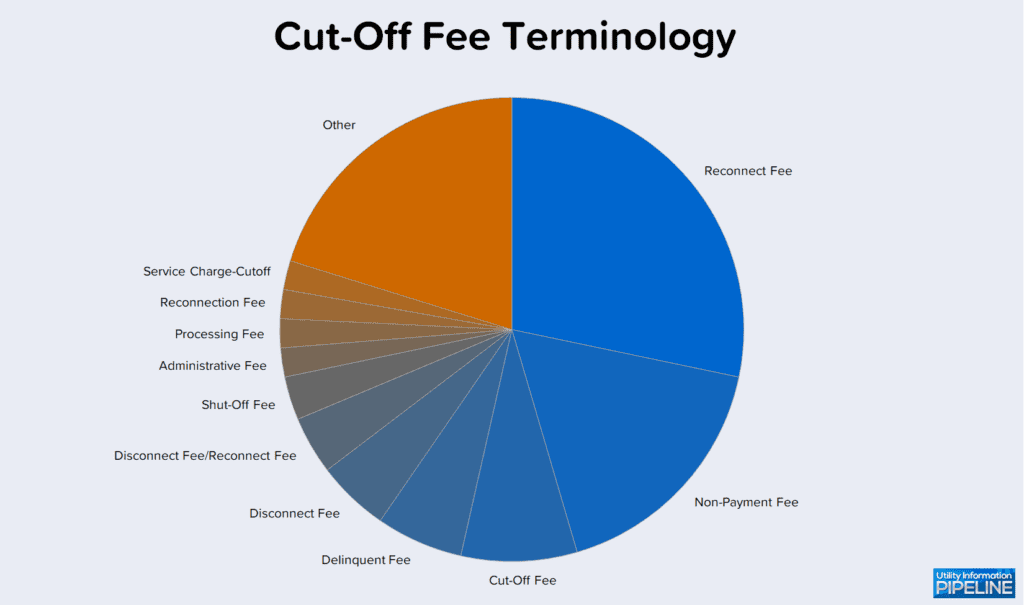
For the number of responses, including the 20 terms included in the “Other” category, please click here.
Again this year, Reconnect Fee is still the most popular term, but Non-Payment Fee and Delinquent Fee have become the second and fourth most popular terms, as many utilities adopt terminology that does not refer to cut-off or reconnection. Calling your cut-off fee Non-Payment Fee, Delinquent Fee, Administrative Fee, or any of the other terms not implying cut-off or reconnection helps to avoid the inevitable arguments with customers who must pay the fee but have not been cut off.
As with late fees, the survey also asked how, other than the utility bill, customers are notified that they are about to be cut-off for non-payment. The responses are shown below (again, the total of all responses is greater than the number of participating utilities because some utilities use multiple methods of contact):
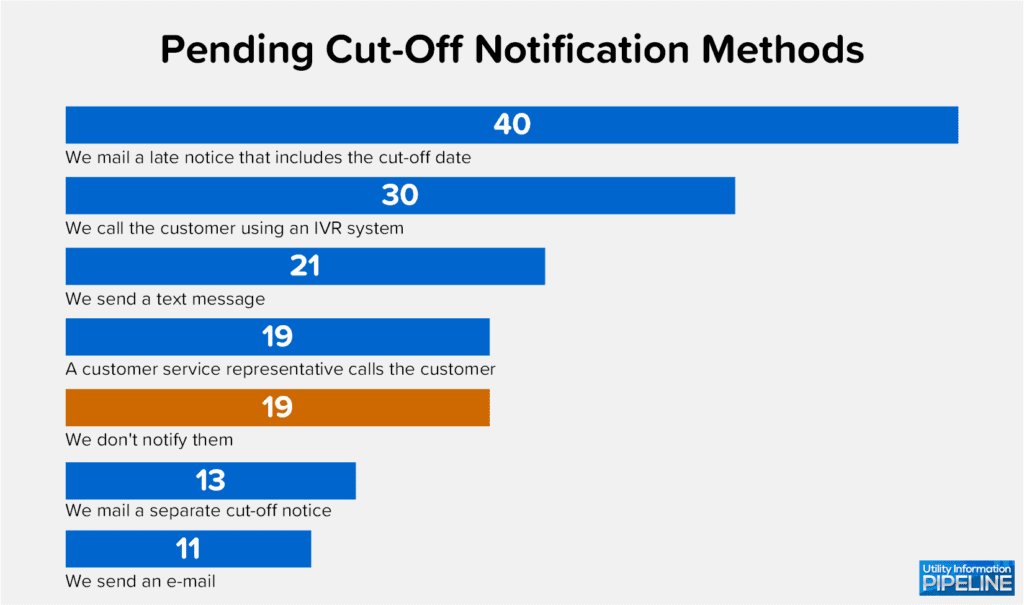
This year’s survey also asked how utilities notify customers after they have been disconnected for non-payment. The responses are shown below (again, a few of the participating utilities employ multiple methods of contact):
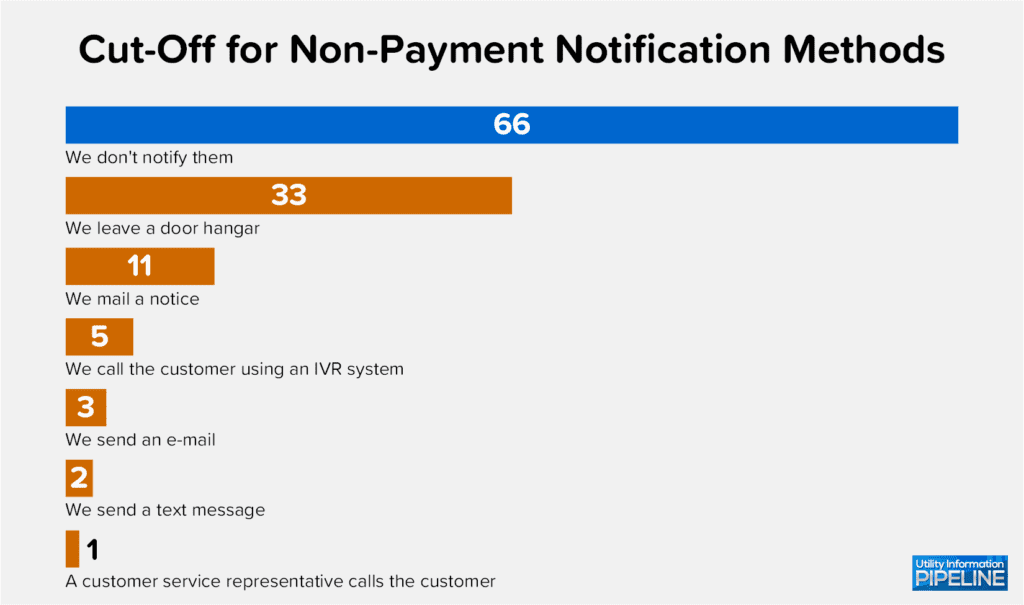
After hours reconnect fees
Of the 99 utilities that cut off for non-payment, 46 of them (representing 46.5%) will reconnect after hours and charge a fee for this service. This is up slightly from 45.0% of responding utilities in the 2021 Utility Fee Survey.
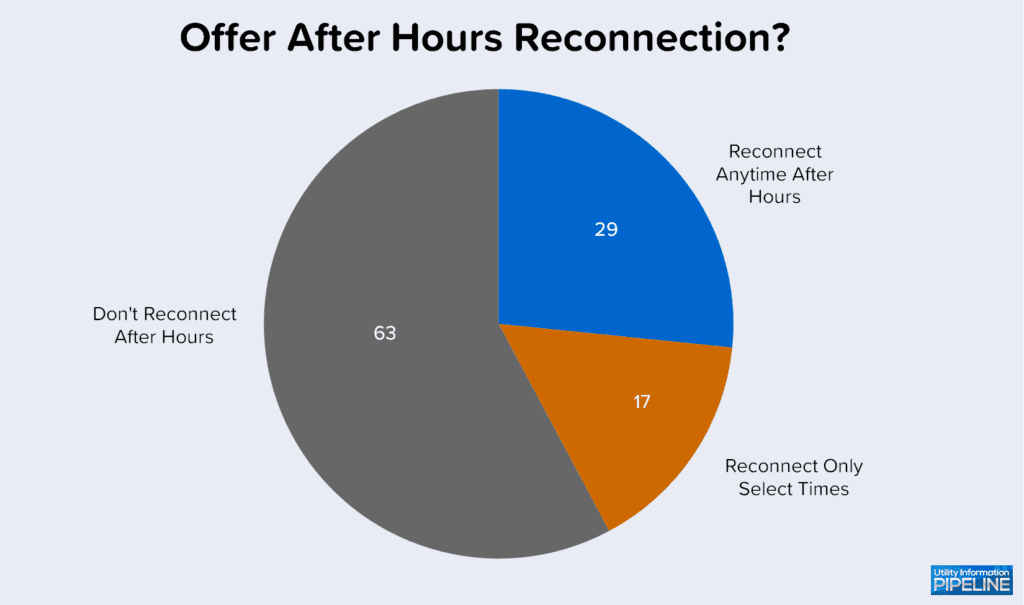
29 of the 46 utilities (or 63.0%) will reconnect anytime after regular office hours. The remaining 17 utilities will only reconnect during selected time periods as shown below:
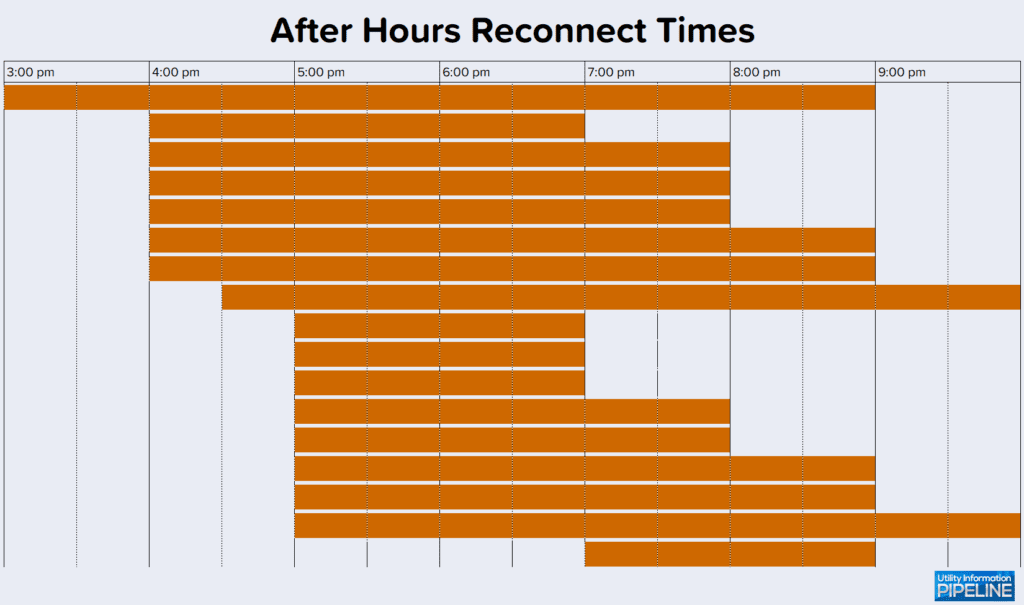
After hours reconnect fee amounts range from $25.00 to $250.00 as shown by the following graph:
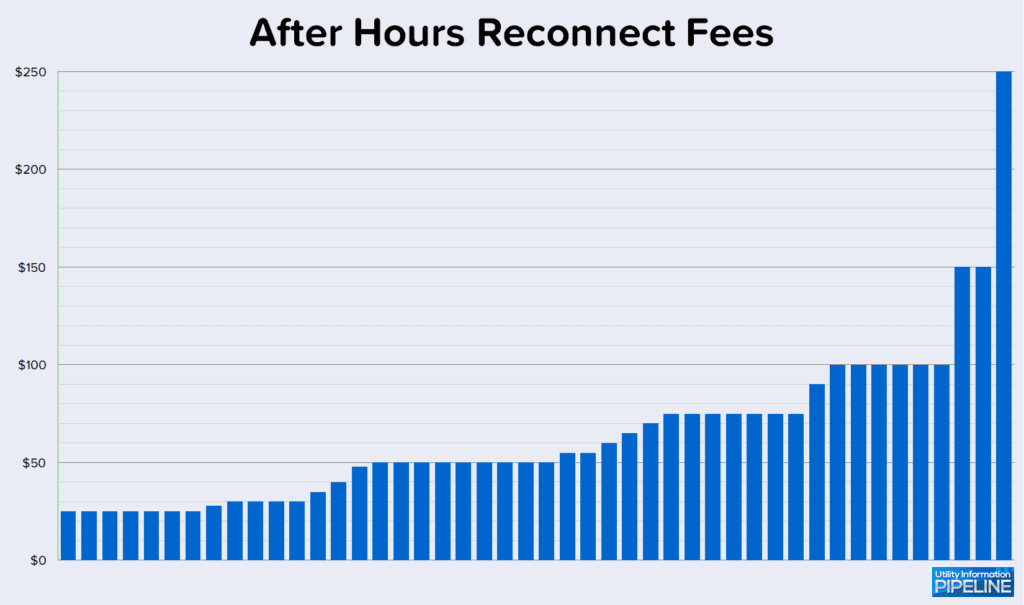
Same day reconnect fees
The survey also asked how many utilities charge a fee for same-day reconnection for non-payment. Three utilities charge a fee for this service, ranging from $10.00 to $30.00, as shown below:
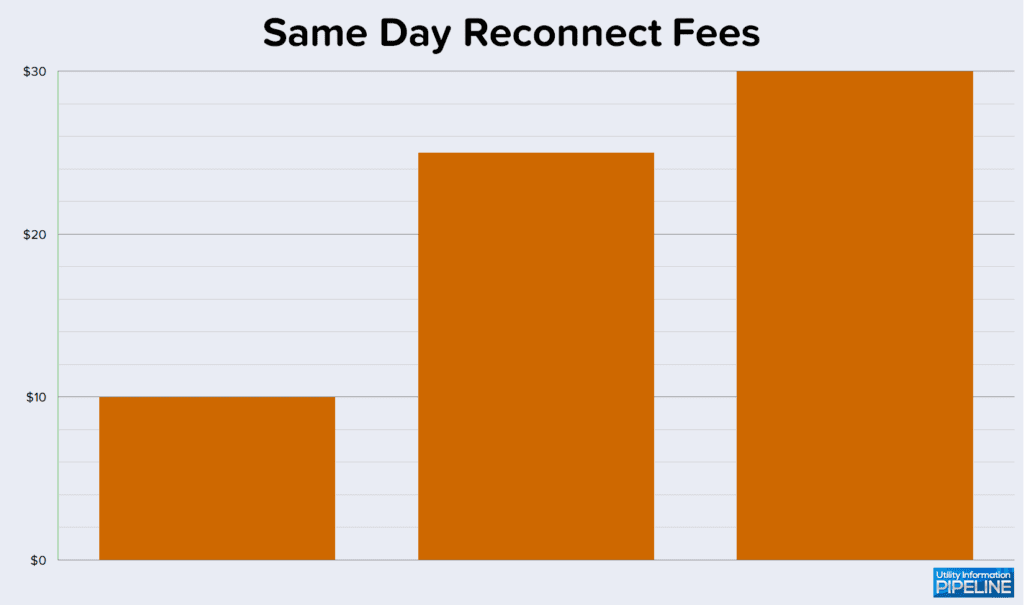
A special offer
I’m offering a special offer to the first three Utility Information Pipeline subscribers who respond. If you are one of the first five to respond, I will conduct a personalized fee consultation for half off the regular price. That’s $750 rather than the usual $1,500 price for this service!
I will review your utility’s current fee schedule and conduct an in-depth phone assessment to learn more about your fees. You will receive a presentation quality document illustrating how your fees compare with other utilities. Also included will be my recommendations for revising any existing fees and suggestions of new fees you should consider charging.
If you are interested in this special offer, please contact me by calling 919-673-4050 or e-mailing me at gary@utilityinformationpipeline.com. Remember, the special discount offer is only available to the first five people who respond!

© 2023 Gary Sanders
